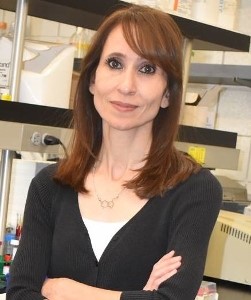 On University of California, Irvine Week: Trauma from war is a painful truth.
On University of California, Irvine Week: Trauma from war is a painful truth.
Amal Alachkar, associate professor of teaching and pharmaceutical sciences, examines ways to help mitigate the fallout.
When the peaceful uprising began in Syria during the Arab Spring, Dr. Amal Alachkar was among the academics who supported the student movement demanding dignity, freedom of speech, and justice for all Syrians. But speaking out put her research and her life in danger. Support from the international rescue agencies enabled Dr. Alachkar to join UC Irvine as a professor and after her fellowship ended, she was able to secure a full-time academic position at UC Irvine, where she has already helped to establish UC Irvine’s first online master’s program in Pharmacology.
Trauma-Induced Depression
When the 2011 peaceful uprising in Syria turned into war, my family and I were among the 13 million refugees who had to leave their homes.
Through that life-changing experience, I became concerned about the long-lasting, impacts of trauma caused by wars, genocides and natural disasters not just on the current generations but also the generations to come. My current research focuses on how and when biological mechanisms lead to the trauma transmission from the parents or even grandparents to children.
In our most recent study, we identified a novel biomarker for early life prediction of those at risks of the development of depression in adulthood. We also found that early pharmacological interventions with acetyl-L-carnitine supplementation produced long-lasting protection against intergenerational trauma-induced depression.
Given the unique features of acetyl-L-carnitine, this natural supplement can represent an innovative and unique protective strategy, should it be administered early in life.
We are studying the mechanisms of stress and depression so that healthcare professionals can prevent the psychiatric disorders rather than just intervene. The study is particularly relevant at this moment in human history, as so many pregnant women are exposed to stressful environments such as the COVID-19 pandemic.
It is also timely in the awakening of the antiracism movement, as it tackles the biological mechanisms of collective transgenerational trauma of slavery, racism, and oppression. This has transforming impact on the lives of millions of people globally who suffer from depression or have the risk of developing this disabling disorder, particularly those in which the depression arose from intergenerational trauma.
As scientists, we might not be able to prevent human-made wars and atrocities or some natural disasters, but we hope to mitigate their long-term deleterious effects on mental health.

Comments
6 responses to “Amal Alachkar, University of California, Irvine – Trauma-Induced Depression”